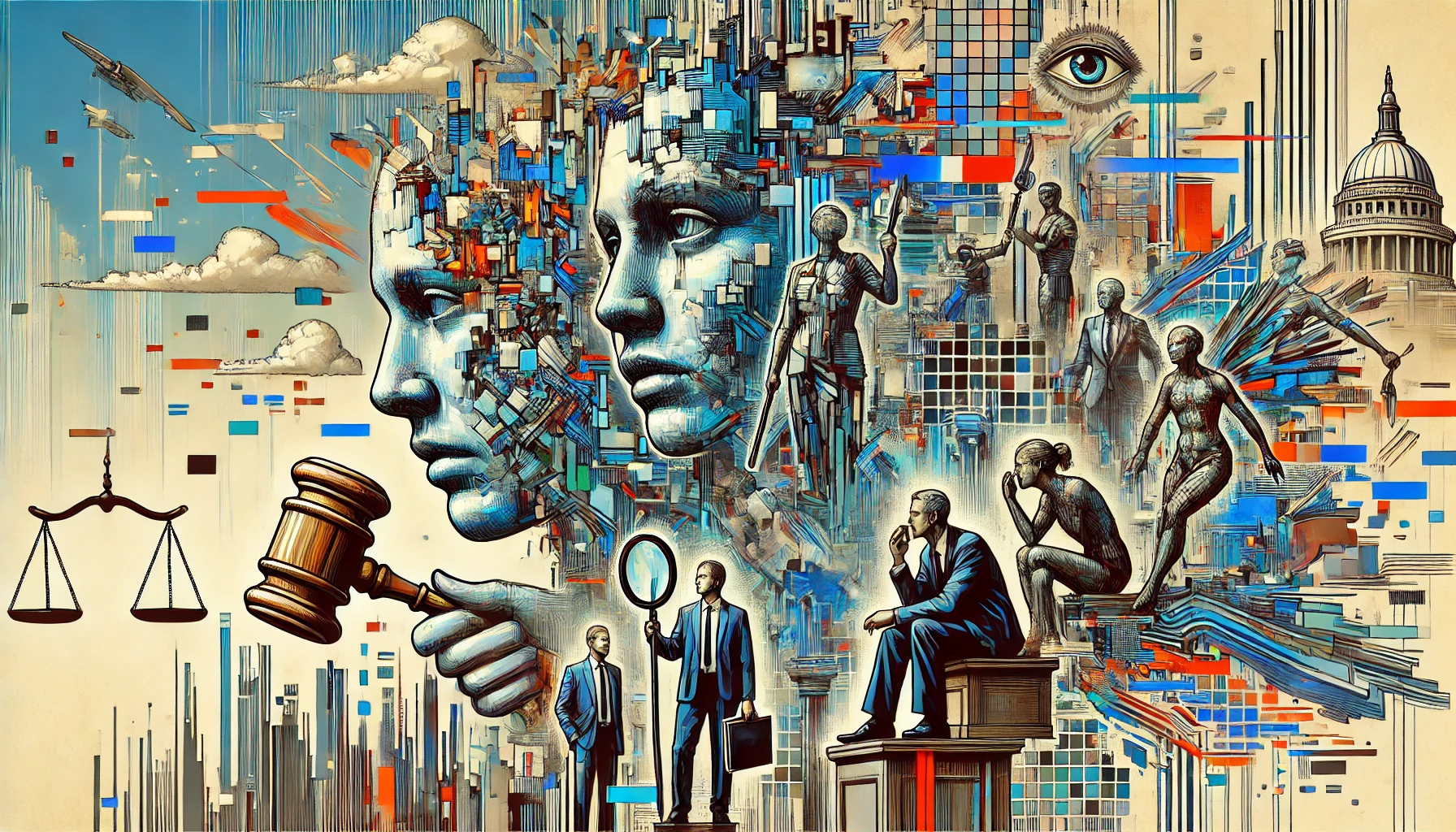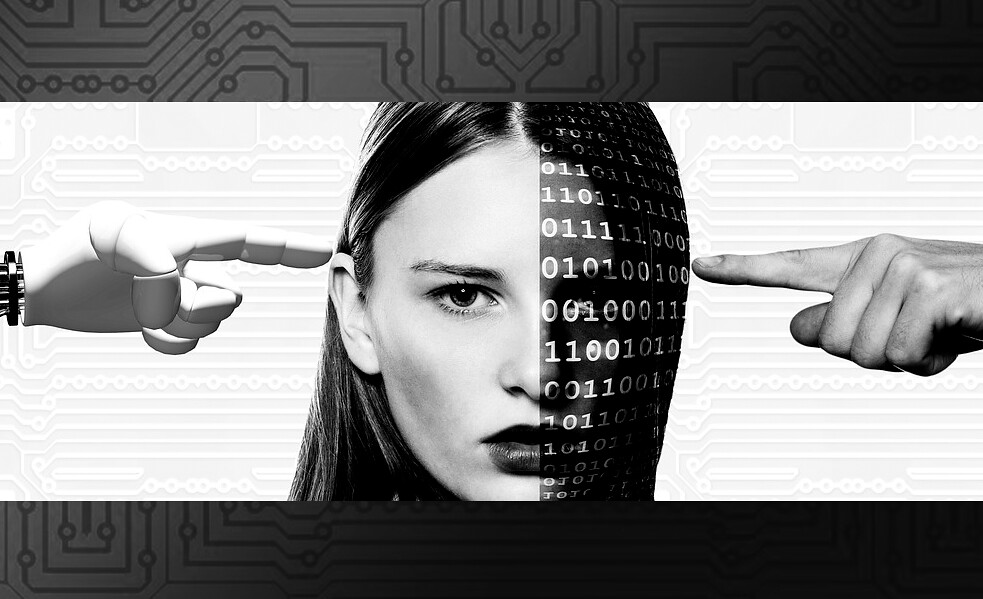When you think of AI, you probably imagine robots, voice assistants, and maybe some futuristic tools that make life easier. But here’s the thing—while we're all marveling at the wonders of artificial intelligence, California is out here writing the rulebook to make sure we don’t lose control. Governor Gavin Newsom is on a mission, and with 38 AI-related bills on his desk, he’s already signed eight into law. These are America’s most progressive AI laws to date, tackling issues that range from deepfake nudes to AI-generated political ads.
But let’s zoom in further. Because while it may sound like just another set of regulations, these laws will have ripple effects on industries, tech companies, Hollywood, and even how elections are run.
California’s Groundbreaking AI Laws: What You Need to Know
Governor Newsom, who is clearly not shy about taking on tech giants, has signed several bills into law that address the potential dark side of AI. The eight laws that have already passed are far-reaching, but they’re just the tip of the iceberg. Let’s break it down.
AI and Deepfake Nudes: Time to Get Serious
First up, SB 926 and SB 981. Imagine waking up one day to find an AI-generated nude image of yourself circulating the internet. Scary, right? Well, that's exactly what California lawmakers are trying to prevent.
SB 926 makes it a criminal act to blackmail someone using deepfake nudes that look like them. Yes, you read that right. People are using AI to create fake nudes of others and then extorting them. If that doesn’t sound dystopian, I don’t know what does.
SB 981 steps in to help victims by forcing social media platforms to act fast. The law mandates platforms like Facebook and Instagram to provide ways for users to report deepfake nudes. Once reported, these platforms must investigate and remove the offending content if it's confirmed as AI-generated. Think of it as a digital fire extinguisher for one of the nastiest fires AI can start.
AI and Elections: The Truth is No Longer Optional
Next on the list is one of the hottest topics in recent years—elections. Remember the chaos of misinformation during elections? Now imagine AI-generated deepfakes thrown into the mix, tricking voters with fake speeches or endorsements. That’s the terrifying reality lawmakers are tackling.
Governor Newsom has signed three laws specifically aimed at curbing AI’s influence on elections.
-
AB 2655 requires big online platforms like Facebook, X (formerly Twitter), and YouTube to label AI-generated election content or remove it altogether. Voters deserve to know if what they’re watching is real or AI-generated nonsense.
-
AB 2839 goes a step further, targeting social media users themselves. Anyone who posts or reposts AI deepfakes meant to deceive voters could face legal consequences. Got your attention yet?
-
Lastly, AB 2355 ensures that AI-generated political advertisements have clear disclosures. So if you're scrolling through your feed and see an ad of a politician making wild claims, you’ll know if AI had a hand in it.
AI and Hollywood: No Cloning Dead Actors, Please
Hollywood loves AI almost as much as Silicon Valley does. But two new laws are setting boundaries. With AB 2602, studios are now required to get permission from an actor before creating a digital clone of their voice or likeness using AI. This stops companies from making AI replicas of actors without their consent, which—let’s face it—could have resulted in some pretty unethical practices.
And for all those classic movies fans out there, AB 1836 ensures that studios can’t create digital replicas of deceased performers without consent from their estates. It’s one thing to bring back an iconic character; it’s another to do so without permission.
Imagine watching a new "Star Wars" movie featuring a digital replica of Carrie Fisher or seeing Humphrey Bogart in a brand-new action movie, all without their estate’s approval. Creepy, right?
AI Watermarks: Let’s Keep Things Transparent
One of the less flashy, but equally important laws is SB 942, which requires that AI-generated content comes with watermarks or other forms of disclosure in its metadata. If you’re using tools like DALL-E to generate images, you’ll now see tags in their metadata that say, “Hey, I’m AI-generated.” Transparency, folks.
It may not sound like a big deal, but as AI-generated content floods the web, we need a way to tell what’s real and what’s not. And with AI creating everything from art to fake news, this law is a first step in ensuring that we know where things come from.
What’s Next? The Future of AI in California
Here’s where things get even more interesting. Governor Newsom still has 30 AI-related bills sitting on his desk. One of the most talked-about is SB 1047, which could become the most ambitious AI law yet. This bill seeks to tackle the bigger, existential risks of AI, addressing the potential for AI to become a threat to humanity itself.
During a recent talk with Salesforce CEO Marc Benioff, Newsom admitted that while AI poses many hypothetical risks, there are more immediate concerns that need addressing. Essentially, the bill aims to draw a line between manageable risks (like deepfakes) and those that are still the stuff of sci-fi nightmares.
Expect SB 1047 to make headlines soon, because if it passes, it could set the stage for other states—and even countries—to follow California’s lead.
Why Should You Care? (And Why You Really, Really Should)
Now, you might be thinking, “This is cool and all, but how does this affect me?”
Let’s break it down. These laws don’t just regulate AI companies or actors in Hollywood—they have implications for everyone.
- Social Media Users: Be careful what you share, because AI-generated content could soon land you in hot water.
- Creators: If you’re using AI to make art, ads, or even memes, get ready to follow some new rules.
- Voters: AI could influence how you see political candidates and even elections themselves. The next time you see a video of a candidate making wild claims, check if it’s real.
- Consumers: As AI continues to dominate everything from healthcare to entertainment, these laws will shape how you interact with AI technologies in the future.
And if you live in California, you're living in a state that’s shaping the national conversation around AI regulation. Whether you’re a creator, consumer, or just someone scrolling through social media, these laws will touch your life in one way or another.
Join the Conversation
The future of AI is still being written, and you have a role to play. Do you think these laws go far enough? Should we be worried about the rise of AI, or are we just overreacting? Let’s hear what you have to say.
Jump into the comments, share your thoughts, and become part of the iNthacity community. Together, we can navigate the brave new world of artificial intelligence, its promises, and its pitfalls.
And hey, while you’re at it, why not apply to become a permanent resident or citizen of the “Shining City on the Web”? Let’s continue the conversation, shape the future of AI, and build something great—together.





















Post Comment
You must be logged in to post a comment.